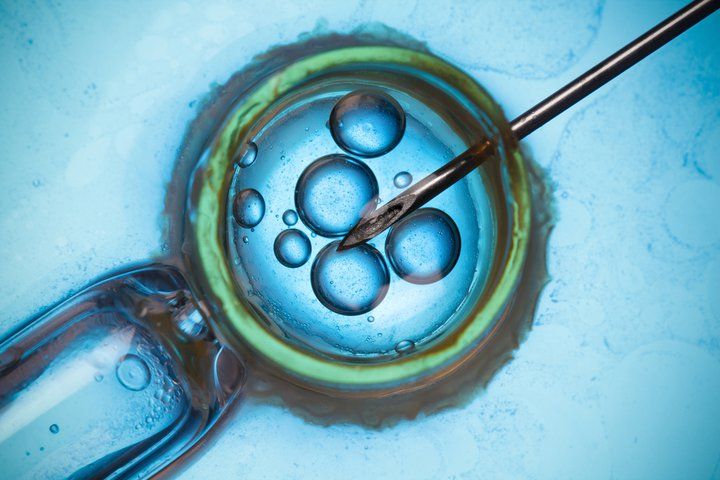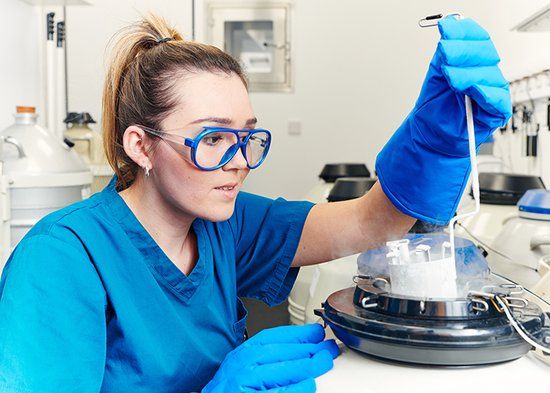
In our series of special blogs to mark this week’s National Fertility Awareness Week (2-8 Nov), in today’s post our Lead Embryologist and Director of our clinic, Dr Debbie Falconer, gives a brief overview of the different forms of IVF – conventional IVF, IVF/ICSI and Modified Natural Cycle, and when each might be recommended to you:
IVF – In Vitro Fertilisation
What is it?: IVF is when your mature egg is fertilised by your partner’s sperm – or a donor’s –in our laboratory. Literally, it means ‘fertilisation in glass’. A typical cycle of IVF involves different stages, starting with stimulation of your ovaries. This makes you produce mature eggs, which are collected and then fertilised with specially-prepared sperm taken from a sample given by your partner, or donor sperm.
Eggs which fertilise become embryos, with the best embryo transferred back into your body to grow as in a natural pregnancy. Success rates are consistently good for IVF here at Manchester Fertility, thanks to the techniques and innovations we use such as EmbryoScope, EmbryoGlue, Endometrial Scratching and Blastocyst transfer.
When would it be used?:IVF would normally be recommended if you have problems that prevent the egg and sperm meeting for natural conception – such as blockages in your fallopian tubes. It’s also used in cases of unexplained infertility, when no medical cause can be found for your inability to conceive.
ICSI – Intracytoplasmic Sperm Injection
What is it?: ICSI is a refinement of IVF treatment. Instead of sperm being mixed with your mature egg to fertilise it, a single healthy sperm is extracted from the sample and injected directly into the egg instead.
When would it be used?:ICSI is commonly used in cases of male infertility, when there are problems with the sperm that stop it reaching the egg, including poor sperm mobility and abnormal shape.
Modified Natural Cycle IVF
What is it?:This is one of the newer types of IVF, also known as ‘Gentle’ or ‘Light’ IVF. It is the same as conventional IVF, but uses lower doses of the fertility drugs that stimulate the ovaries. It means you may have fewer eggs to use in your treatment, but costs are typically lower.
When would it be used?: Modified Natural Cycle IVF is an option if you’re worried about the effects of ovarian stimulation or are at risk of Ovarian Hyperstimulation Syndrome, which is when the ovaries produce too many eggs. It may be recommended if you’ve responded poorly to IVF stimulation in the past, or have a low AMH level. Modified Natural Cycle IVF isn’t suitable for everyone, we’ll discuss with you if it would be an option you can consider.
If you have any questions about the types of IVF treatments we offer, you can speak to our friendly Patient Advisors on 0161 300 2737.
If you prefer, you can also use our discreet Live Chat facility via our homepage, or our free Ask the Expert feature. You can even request a callback from our team, at a time that most suits you. We look forward to talking with you.
Tomorrow’s blog topic for National Fertility Awareness Week: Snapshot Treatment Guide Part 2, covering IUI, Donor Sperm Insemination, Induction of Ovulation, Surrogacy and Surgical Sperm Retrieval.
Last updated: 20th January 2020








